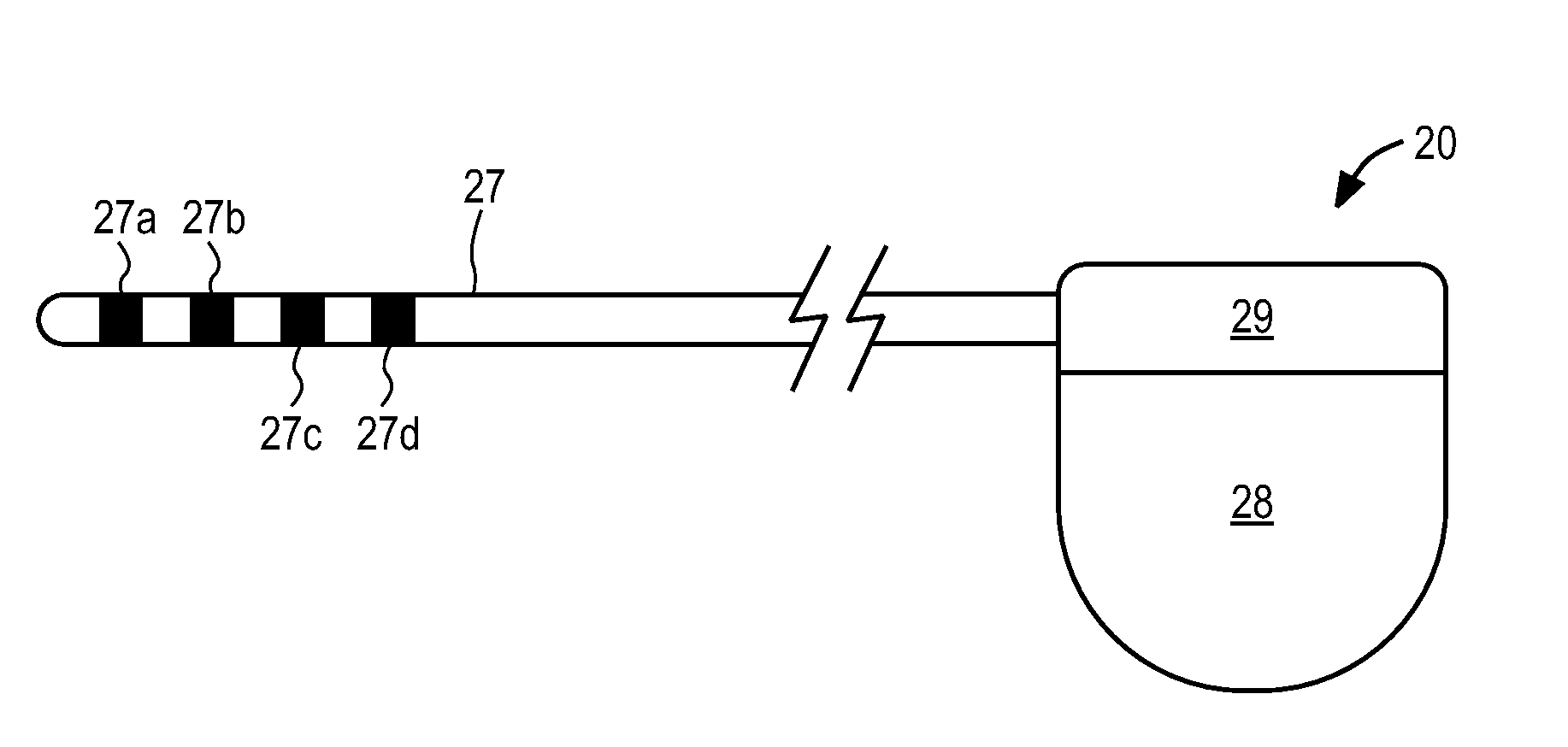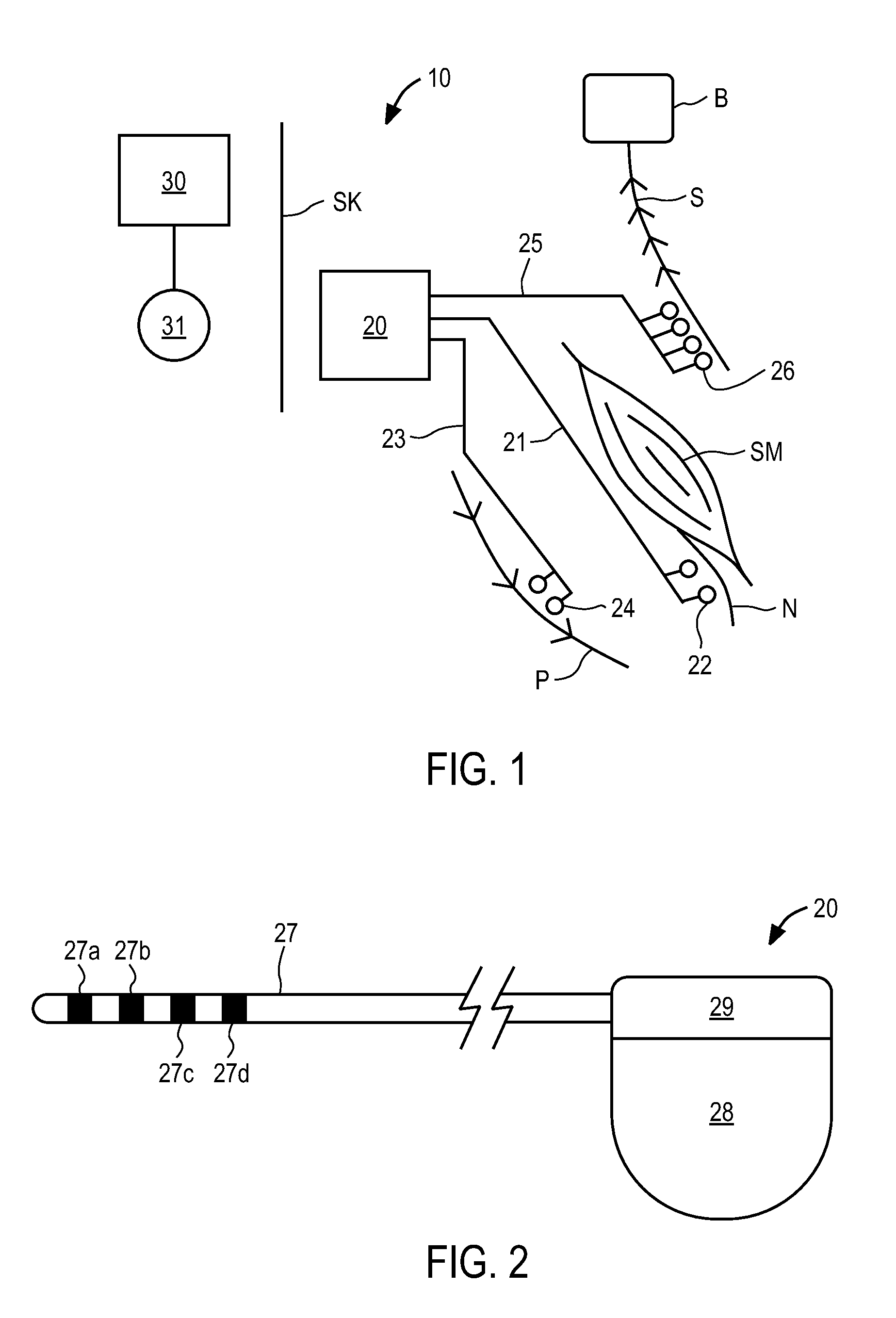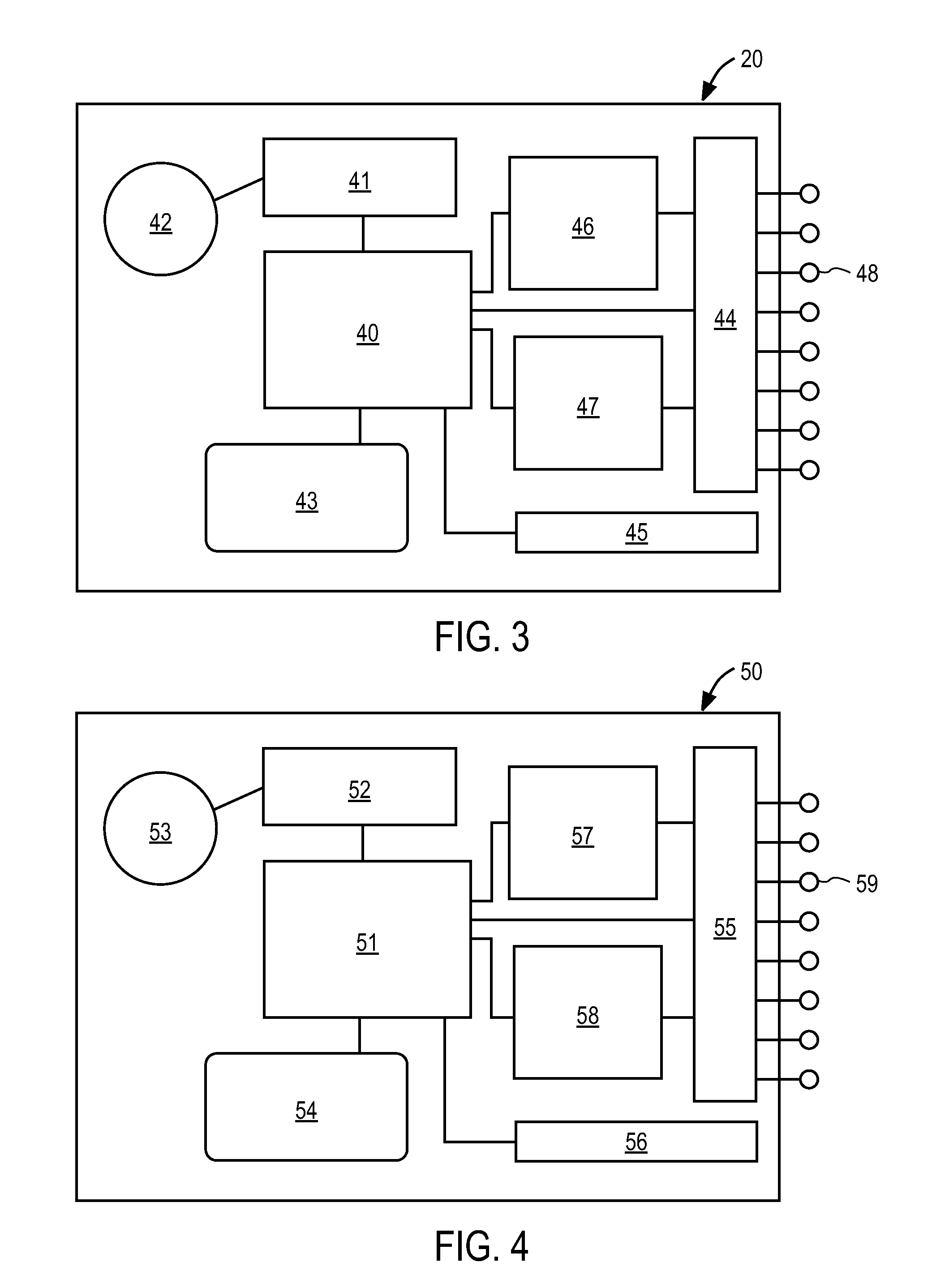Modular stimulator for treatment of back pain, implantable RF ablation system and methods of use
a technology of modulator and back pain, which is applied in the field of modulator for back pain, implantable rf ablation system and methods of use, can solve the problems of overloading of structures, disc degeneration, ligament damage, etc., and achieve the effects of restoring neural drive, reducing pain, and rehabilitating spinal stability
- Summary
- Abstract
- Description
- Claims
- Application Information
AI Technical Summary
Benefits of technology
Problems solved by technology
Method used
Image
Examples
Embodiment Construction
[0040]System Overview
[0041]Referring to FIG. 1, an overview of an exemplary stimulator system constructed in accordance with the principles of the present invention is provided. In FIG. 1, components of the system are not depicted to scale on either a relative or absolute basis. Stimulator system 10 comprises implantable stimulator 20 and external control system 30. In the illustrated embodiment, software may be installed and run on a conventional laptop computer, and used by the patient's physician to program external control system 30 and / or to provide programming that is communicated by external control system 30 to stimulator 20. During patient visits, external system 30 may be coupled, either wirelessly or using a cable, to the physician's computer to download for review data stored on stimulator 20, or to adjust the operational parameters of the stimulator.
[0042]In FIG. 1 implantable stimulator 20 is connected to a plurality of electrode leads. Illustratively, electrode lead 2...
PUM
 Login to View More
Login to View More Abstract
Description
Claims
Application Information
 Login to View More
Login to View More - R&D
- Intellectual Property
- Life Sciences
- Materials
- Tech Scout
- Unparalleled Data Quality
- Higher Quality Content
- 60% Fewer Hallucinations
Browse by: Latest US Patents, China's latest patents, Technical Efficacy Thesaurus, Application Domain, Technology Topic, Popular Technical Reports.
© 2025 PatSnap. All rights reserved.Legal|Privacy policy|Modern Slavery Act Transparency Statement|Sitemap|About US| Contact US: help@patsnap.com



